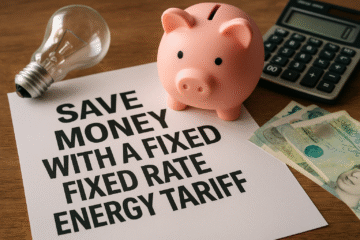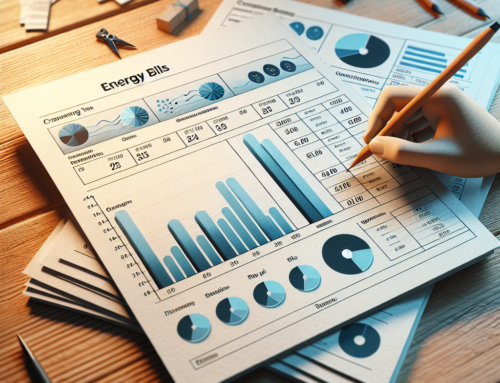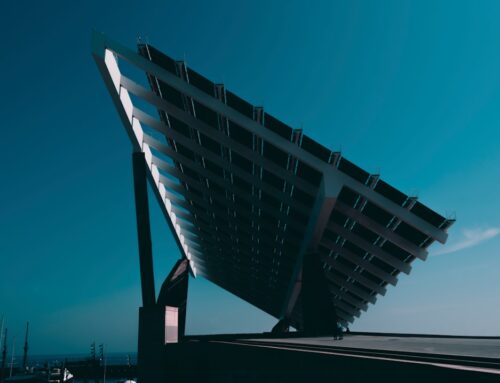Understanding your electricity usage is the first step in identifying opportunities to save energy in your home. By monitoring your energy consumption, you can gain insight into which appliances and devices are using the most electricity and make informed decisions about how to reduce your usage. One way to do this is by using a smart energy monitor, which can provide real-time data on your energy usage and help you identify areas where you can make improvements. Additionally, reviewing your electricity bills over time can give you a better understanding of your energy usage patterns and help you identify any changes in consumption.
Another important aspect of understanding your electricity usage is knowing the different factors that can affect it. For example, the size and layout of your home, the number of occupants, and the types of appliances and devices you use can all impact your energy consumption. By understanding these factors, you can better assess your energy needs and make more informed decisions about how to reduce your usage. Overall, understanding your electricity usage is crucial for identifying opportunities to save energy and reduce your environmental impact.
Identifying Energy-Saving Opportunities in Your Home
Once you have a good understanding of your electricity usage, you can start identifying energy-saving opportunities in your home. One of the first things to consider is the efficiency of your home's insulation and sealing. Poor insulation and air leaks can lead to significant energy loss, so it's important to ensure that your home is properly insulated and sealed to prevent heat loss in the winter and keep cool air in during the summer. Additionally, upgrading to energy-efficient windows and doors can further improve your home's insulation and reduce energy consumption.
Another area to focus on when identifying energy-saving opportunities is your heating and cooling systems. Upgrading to a programmable thermostat can help you better control your home's temperature and reduce energy usage when you're not at home. Additionally, regular maintenance of your HVAC system, such as cleaning or replacing filters, can improve its efficiency and reduce energy consumption. Finally, consider replacing old appliances with energy-efficient models, as newer appliances are often designed to use less energy while still providing the same level of performance. By identifying these and other energy-saving opportunities in your home, you can make significant strides in reducing your energy consumption and lowering your utility bills.
Implementing Energy-Efficient Lighting Solutions
One of the easiest ways to save energy in your home is by implementing energy-efficient lighting solutions. Traditional incandescent bulbs are highly inefficient and waste a lot of energy as heat, so replacing them with LED or CFL bulbs can significantly reduce your energy usage. LED bulbs, in particular, are known for their long lifespan and low energy consumption, making them a cost-effective and environmentally friendly lighting option. Additionally, using dimmer switches and motion sensors can help further reduce energy usage by only using light when it's needed.
Another way to implement energy-efficient lighting solutions is by maximising natural light in your home. Keeping curtains and blinds open during the day can help reduce the need for artificial lighting, while also providing other benefits such as improved mood and productivity. Additionally, consider installing skylights or solar tubes to bring more natural light into your home. By implementing these energy-efficient lighting solutions, you can reduce your electricity usage and create a more sustainable living environment.
Maximising the Efficiency of Your Appliances
Maximising the efficiency of your appliances is another important step in saving energy in your home. One way to do this is by using appliances with high Energy Star ratings, which are designed to use less energy while still providing the same level of performance. When shopping for new appliances, look for models with the Energy Star label to ensure that you're choosing the most efficient option. Additionally, consider using appliances with advanced features such as load-sensing technology in washing machines and dishwashers, which can adjust water usage based on the size of the load.
Regular maintenance of your appliances is also crucial for maximising their efficiency and reducing energy consumption. For example, cleaning or replacing filters in your HVAC system, refrigerator, and dryer can improve their efficiency and reduce energy usage. Additionally, keeping coils and vents clean can help appliances run more efficiently and use less energy. By maximising the efficiency of your appliances through smart purchasing decisions and regular maintenance, you can significantly reduce your energy consumption and lower your utility bills.
Utilising Smart Technology to Monitor and Control Energy Usage
Utilising smart technology is a great way to monitor and control your energy usage in real time. Smart thermostats, for example, allow you to remotely control your home's temperature and create custom heating and cooling schedules based on your daily routine. This can help you reduce energy usage when you're not at home or asleep, leading to significant cost savings over time. Additionally, smart power strips and plugs allow you to remotely turn off devices that are not in use, preventing them from consuming unnecessary electricity.
Another way to utilise smart technology is by installing a home energy management system, which can provide real-time data on your energy usage and help you identify areas where you can make improvements. Some systems even offer personalised recommendations for reducing energy consumption based on your specific usage patterns. By utilising smart technology to monitor and control your energy usage, you can make more informed decisions about how to save energy in your home and lower your environmental impact.
Incorporating Renewable Energy Sources
Incorporating renewable energy sources into your home is a great way to reduce your reliance on traditional electricity sources and lower your environmental impact. One of the most popular renewable energy sources for homeowners is solar power, which involves installing solar panels on your roof to generate electricity from sunlight. Solar panels can significantly reduce or even eliminate your electricity bills, depending on the size of the system and your energy usage. Additionally, some governments offer incentives such as tax credits or rebates for installing solar panels, making them an even more attractive option for homeowners.
Another renewable energy source to consider is wind power, which involves installing a small wind turbine on your property to generate electricity from wind. While wind power may not be as feasible for all homeowners due to location and space constraints, it can be a great option for those living in windy areas with enough open space for a turbine. By incorporating renewable energy sources such as solar power or wind power into your home, you can reduce your reliance on traditional electricity sources and make a positive impact on the environment.
Tracking and Monitoring Your Progress
Once you've implemented various energy-saving measures in your home, it's important to track and monitor your progress to ensure that you're achieving the desired results. One way to do this is by regularly reviewing your electricity bills to see if there's been a noticeable reduction in energy consumption since implementing energy-saving measures. Additionally, using a smart energy monitor can provide real-time data on your energy usage and help you track changes over time.
Another way to track and monitor your progress is by conducting regular energy audits of your home. This involves assessing the efficiency of your appliances, lighting, insulation, and other factors that contribute to your overall energy consumption. By conducting regular energy audits, you can identify any areas where further improvements can be made and continue to reduce your energy usage over time.
In conclusion, understanding your electricity usage is crucial for identifying opportunities to save energy in your home. By implementing energy-efficient lighting solutions, maximising the efficiency of your appliances, utilising smart technology to monitor and control energy usage, incorporating renewable energy sources, and tracking and monitoring your progress, you can make significant strides in reducing your energy consumption and lowering your environmental impact. By taking these steps towards a more sustainable lifestyle, you can not only save money on utility bills but also contribute to a healthier planet for future generations.






